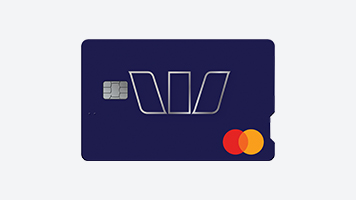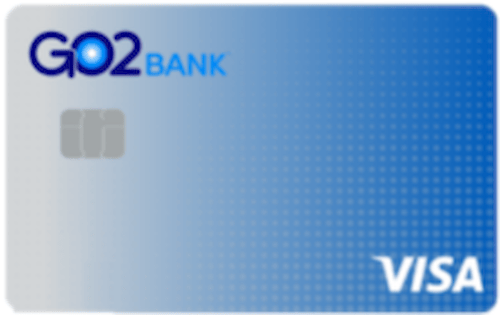For example: They might charge 2.5%, 5% or even as much as 10-12% per transaction. This sucks because you can pay as much as you would for a $1,000 or even $10,000 wire, but for a. Annual Fee Waiver BDO Unibank, Inc. Get annual fee waiver using your credit card points. Image: Read more. About Diamond Principal AMF Waiver. About Titanium Supplementary AMF Waiver. About Titanium Principal AMF Waiver. John will need to reduce the amount of his bet or pay off some of his credit card balance before he can make another gambling transaction on his credit card. For more information, please review the frequently asked questions (FAQs) below or call us on 13 22 73 (or +61 3 9683 9999 if overseas). Ignition Casino will not apply a fee to these transactions. Credit Card - 5.9% or higher depending on the card you choose to use (the fee is indicated on the deposit page below the ' Enter Amount ' field). Is there an extra charge on your credit card statement? Your bank or card-issuer may impose the fees.
- Credit Card Gambling Feel
- Gambling Card Games
- M&s Credit Card Gambling Transaction Fee
- Credit Card Gambling Fees
Yes, or, more precisely, there are two things.
Most credit card providers now class gambling as a cash advance transaction, the most expensive way to borrow.
In addition, using a credit card to gamble, even if the balance is likely to be paid back in full, means borrowing to gamble.
That's not a great idea.
Let's look a little more closely at these two problems.
Charges for gambling
As we noted above, in the vast majority of cases, the charge for making a gambling transaction with a credit card will be the same as the charge for making a cash withdrawal with that same card at an ATM.
That means the provider will impose a higher rate of interest than for purchases and they may also charge a handling fee - an additional one-off charge which is a percentage of the transaction amount.
Credit Card Gambling Feel
In most cases, cash advance transactions don't enjoy the standard interest free period credit card purchases enjoy (see here for more information) and, in every case we've ever heard of, they won't pick up any reward points or cash back.
In other words, from the moment the card is used to fund gambling, interest is being charged at a high rate and it will continue to be charged until the balance is paid off in full.
This is true of:
- American Express
- Bank of Scotland
- Barclaycard
- Halifax
- HSBC
- Lloyds TSB
- MBNA
- Natwest
- Nationwide
- RBS
- Santander
However, some providers do see gambling a little differently from other cash transactions.
When gambling isn't exactly cash
Gambling Card Games
First Direct for example, class gambling as a cash advance transaction for the purposes of charging interest.
However, they do not impose the cash advance fee on gambling transactions.

RBS also slightly modify their terms for gambling: while gambling transactions are subject to the same fees and interest as cash advances, they do not form part of the cash advance limit, when a card has one.
Barclaycard have treated gambling (termed gaming) in exactly the same way as cash from the end of May 2012 but before that gambling transactions were not subject to the transaction fee (the greater of £2.99 or 2% of the transaction) although they were still subject to interest.
Note however, this definition was removed from their summary boxes as of November 2012.
Gambling may also be included in slightly unusual rules about cash withdrawals in general.
For example, if a credit card offers a standard interest free period on cash advances (though this is rare), it could be the case that gambling transactions would be included in the definition of advance and would thus not be subject to interest within the card's standard interest free periods.
More information about cash advances can be found in this guide but proceed with caution: it's not always clear in card terms and conditions whether gambling forms part of the definition of a cash advance transaction.
What counts as gambling?
Credit card providers are strict on the types of purchases they class as gambling transactions. They can include:
- Scratch cards and lottery tickets
- Online poker, bingo or other games of chance online
- Any financial transaction that takes place in a casino, bookies or other gambling establishment. That can even include food and drink bought in a gambling establishment.

In short, there's little leeway and no loopholes.
According to the gambling commission, 73% of people aged over 16 - that's 3.5 million people - took part in some kind of gambling in 2010 and, with the liberalisation of some gaming laws, that number is likely to increase in the near future.
Some of this gambling, like buying a lottery ticket, many people wouldn't even see as 'real' gambling. But the credit card companies charge more for it nonetheless so it's worth looking out for.
M&s Credit Card Gambling Transaction Fee
Gambling with borrowed money
At the very least, then, using a credit card for gambling adds a significant amount to the bet and eats into any winnings.
Much more importantly than that, though, paying high interest rates on borrowing means seriously risking falling into a debt spiral: borrowing more and being able to pay back less.
For thousands of gamblers every year, borrowing to keep gambling leads to serious, unmanageable debt problems.

As we've said, a lot of Britons gamble in some form and may encounter these rules more or less accidentally. But contemplating borrowing money to use specifically for gambling could be an indication that you have a gambling problem.
Gamcare is the UK's largest specialist help organisation for those with gambling problems. They offer advice to anyone concerned about their own gambling or that of a friend or family member.
NHS Direct also has a Gambling Addiction page with links to other useful advice organisations.
Those facing any level of debt as a result of gambling should seek help from an independent advice agency.
Credit Card Gambling Fees
The Citizen's Advice site can help you find the nearest face to face advice centre and online help is available too.
Remember, too, that lenders have a responsibility to protect the most vulnerable borrowers, find out more on this here.